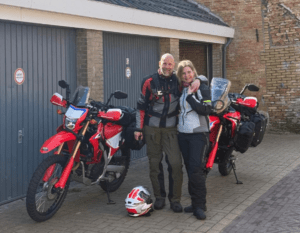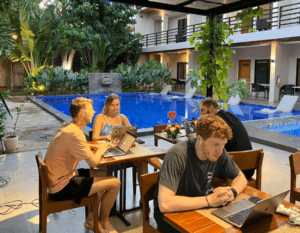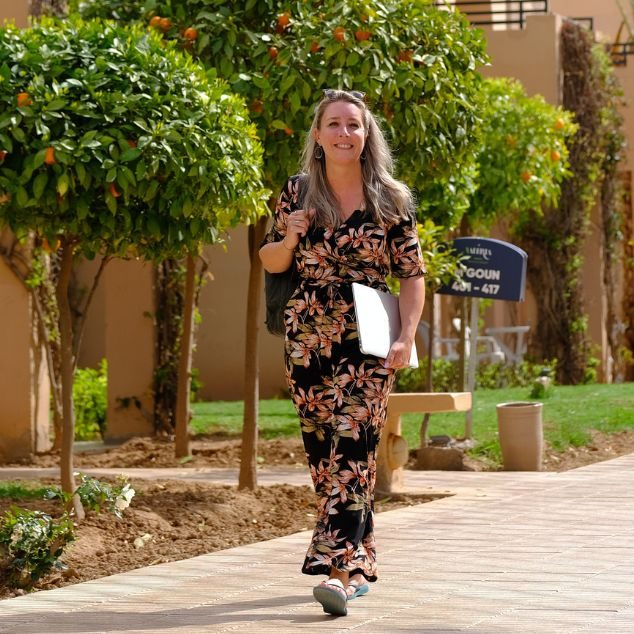Thailand has long been a popular destination for travelers because of its beautiful beaches, rich culture and friendly people. But the country also has a growing appeal for digital nomads and remote workers. Whether you’re a freelancer, entrepreneur or remote worker, Thailand has an unique combination of affordability, comfort and inspiration. In this blog, I share tips and insights for making the most of your time in Thailand as a remote worker or digital nomad.
Remote working in Thailand
Thailand has excellent infrastructure, good Internet, affordable living expenses and a large community of like-minded people who also work remotely. Moreover, you can find a good balance between work and leisure there, thanks to the abundance of co-working spaces, cafes and beautiful places to explore in your free time.
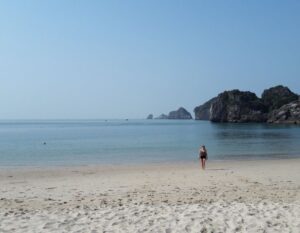
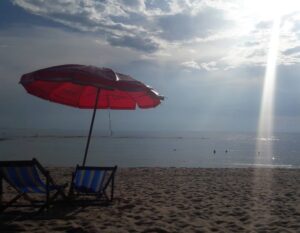
Visa options for digital nomads
When you travel to Thailand, whether you need a visa depends on how long you go. If you stay in Thailand for 60 days or less and have a Dutch passport, you do not need a visa. You will receive a stamp in your passport upon arrival, showing the latest date of your departure. However, you must be able to prove that you will be leaving again within 60 days, such as with a return ticket or a transit ticket. Thailand offers several visa options for people planning to stay longer:
1. Tourist visa: This allows you to stay in Thailand for up to 60 days, with the option to extend it once for another 30 days. This is a good option for those who want to work remotely for a maximum of 2 or 3 months.
2. Education visa: If you plan to take Thai language classes, for example, you can apply for an Education Visa, which allows you to stay in Thailand for up to a year.
3. Smart visa: This visa is specifically aimed at high-skilled professionals, investors and entrepreneurs working in certain sectors. It offers the opportunity to stay in Thailand for four years.
It is important to be well informed about the visa options and their conditions, as they change regularly. You can find information from the embassy in The Hague for current information here.

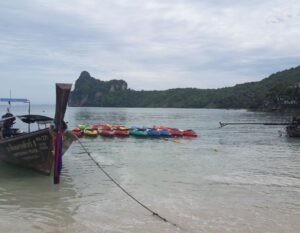
Health and insurance
With a destination like Thailand, chances are you’ll be doing all sorts of cool things, like ziplining, going out on scooters, scuba diving, you’ll probably be going to parties and enjoying all the street food. There are also some risks involved in that, which is why good insurance is important to have here.
It is crucial to have good health insurance during your stay in Thailand. I unfortunately speak from experience and had to go to a clinic because of a small accident on the beach (something with a rock, stubbed toe and rare infection as a result). Then you are glad if you are well insured. Be sure to provide your length of stay in advance and check the box for global coverage. Also make sure you vaccinate against diseases such as hepatitis and dengue. You won’t be the first to have a scooter accident or food poisoning and need care.
Think about insuring your valuables and cash. You are obviously traveling with your laptop, headset, phone, all precious items. I have found Thailand to be very safe and always pay close attention, yet I have experienced 2 unpleasant situations where I was robbed. So I found out that you have to check cash, which you still use relatively often in Thailand, separately with your insurance. With this, do.
Excited about remote working in Asia? Then check out the ultimate guide for digital nomads in Asia.

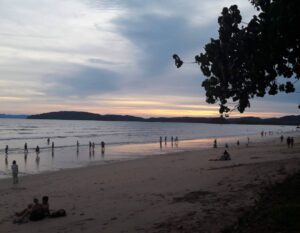
Living expenses and costs in Thailand
One of the biggest advantages of working remotely in Thailand is affordability. Although costs vary depending on your lifestyle and location, Thailand is generally cheaper than many Western countries. Because costs are low, it is relatively easy to stay here a little longer.
Accommodation: You can easily find an apartment in cities like Chiang Mai and Bangkok for around €300 to €600 per month, depending on location and amenities. For an idyllic beach hut, of course, you’ll pay a bit more.
Food: Street food is one of the highlights of Thailand, and it is also very affordable. A meal at a street stall usually costs no more than €3, which I have done many times without getting sick. Restaurants are slightly more expensive, but still very affordable.
Transportation: In cities like Bangkok, public transportation is well organized and very inexpensive. Grab, the Asian version of Uber, is also a convenient way to get around. Or take a TukTuk, which is actually the nicest way to get from A to B.
Favorite places in Thailand
I honestly couldn’t choose which place in Thailand is my favorite. Even though I am really a beach lover and you would quickly expect Koh Phangan or Phuket, I also loved bustling Bangkok and impressive Chiang Mai. Everything has its charm and cannot really be compared. In any case, take enough time for each destination, opt for slow travel. Then you won’t get into a jam with the working hours you need and the travel time it takes to get around. My tips for great places to visit in Thailand can be found in this blog.
Score your remote job and also work from Thailand
Do you also want to be able to work remotely? Then score a remote job and work from beautiful places all over the world. That way you can combine traveling and working. Not sure how to go about that and where to find those jobs? With this I can help you. You can find our brand new E-book here : Find Your Remote Job. It is available in Dutch and in English. It helps you in 5 simple steps to score your remote job!
More tips on workations and remote working:
- Finance around workations: what expenses are deductible?
- Working remotely in Mexico for a month
- Are your vacation days up? Here’s how you can still travel




